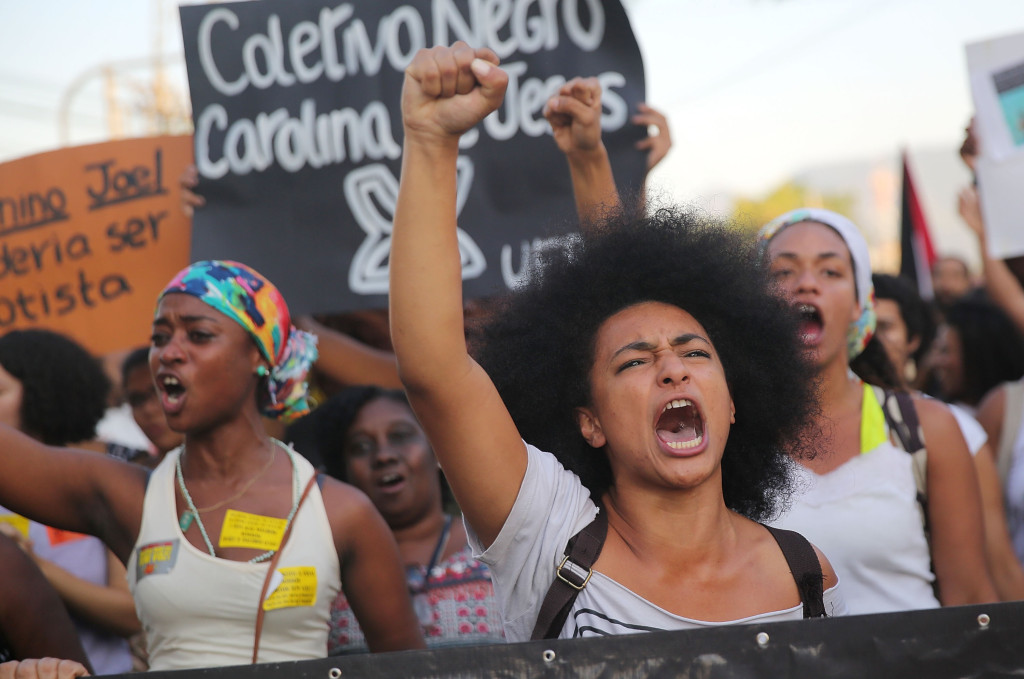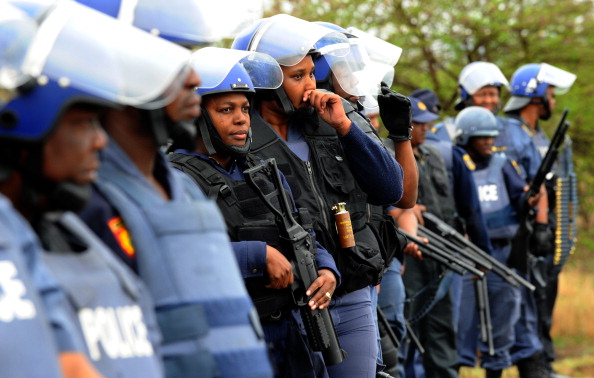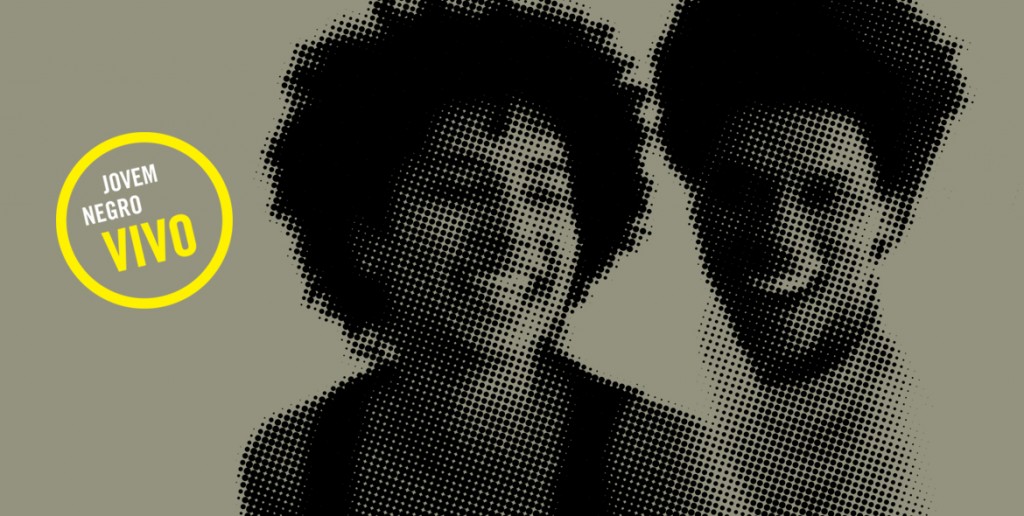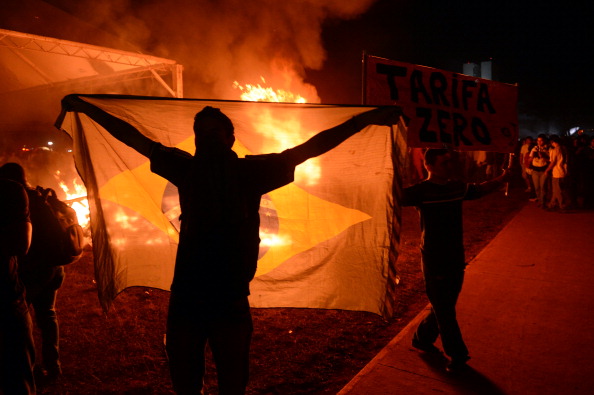
Demonstrators march through the Manguinhos favela to protest against police killings of blacks on August 22, 2014 in Rio de Janeiro, Brazil. Every year, Brazil’s police are responsible for around 2,000 deaths, one of the highest rates in the world. Many of the deaths in Rio involve blacks killed in favelas, also known as slums. (Photo by Mario Tama/Getty Images)
By Steven W. Hawkins, executive director of Amnesty International USA, and Atila Roque, executive director of Amnesty International Brazil
Here in the United States, we know the names. Michael Brown. Eric Garner. Tamir Rice. Walter Scott. Freddie Gray. Rekia Boyd. All African Americans killed by police.
But we don’t know the names of Eduardo de Jesus Ferreira — 10 years old and shot by police who mistook a phone for a gun. Or Alan de Souza Lima — who at 15 was filming his friends laughing and joking and unwittingly captured his own death seconds later in a hail of bullets. Or Claudia da Silva Ferreira, a 38-year-old mother who was wounded in a police shootout, tossed out of the unsecured back door of a police vehicle and fatally dragged 1,000 feet.






 While violence in Northern Brazil is frequently ignored, local families have no other option but to live in fear. People are being threatened and guns are being shot.
While violence in Northern Brazil is frequently ignored, local families have no other option but to live in fear. People are being threatened and guns are being shot. Many people think of
Many people think of